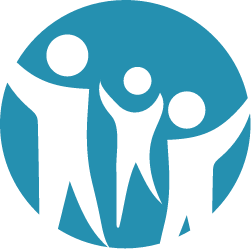An interview with Dr. Kassi Avent, Family Medicine Provider at the Community Health Center of Asbury Park
Reproductive and gender-affirming hormone therapy programs unquestionably engender communities with a greater sense of individual empowerment and collective social equality. Dr. Kassi Avent is at the forefront of providing these services at VNACJ Community Health Center in Asbury Park, NJ.
As a former director at Planned Parenthood, Dr. Avent understands firsthand the impact of reproductive and gender-affirming hormone therapy health care options. It is her aim to bolster VNACJ’s care for its community with these programs, as well as potentially lead the organization in its effort to expand into vasectomies.
We sat down with Dr. Avent to learn more about her work at VNACJ Community Health Center and how she’s serving the community:
How have your first three months at VNACJ been?
It has been a lot of learning, as it is very different than what I was doing previously.
What were you doing before you joined VNACJ?
I was working at Planned Parenthood with reproductive health, gender-affirming hormone therapy, and primary care.
I am mainly working now in primary care, but I am also attempting to bolster our gender-affirming hormone therapy program and reproductive healthcare. Prior to me, VNACJ had one provider for each of those, but now we can double the care that we provide in both of those sectors.
How would you define gender-affirming care?
The care I provide (and there is a wide variety of gender-affirming care) is the medication part. For some gender-affirming can mean name changes or clothing, but for some people, it means taking hormones to support their gender. For others, it may require surgery to support them.
What is a misconception about gender-affirming care that you believe people have the wrong idea about?
The idea that it must be complicated, or complex is something I hear from a lot of physicians, leading to hesitancy in starting the care. It is very safe, and it saves lives. We only use a few medicines, so once the patient gets comfortable with them, the process is straightforward.
There is an obvious overlap between your past role and now, but what are some of the differences?
One thing I am doing a lot more of now is complex primary care. I was director of primary care at Planned Parenthood; but for the most part, the patients were not complex. However, at VNACJ, that is not the case.
One thing I am not doing that I would hope to start here would be vasectomy services. I started the program at Planned Parenthood, and I hope to start it here as well.
In a similar vein to my question about gender-affirming care, what is something that the public does not know about vasectomy services?
They are an outpatient procedure, and that the process is significantly safer than permanent sterilization for a female.
What impact do you feel your services, such as vasectomies, provide community health?
I believe allowing people to take control of their fertility is a key component of equality. With such a loss of females being able to control their fertility, it is important that there are other options.
What do you enjoy about working out of the community health center in Asbury Park?
I love the number of different services, such as mental health, that are offered. It is nice to be able to have a patient that you can immediately refer on site if the patient needs something that is out of my scope.
What is something the public should know more about when it comes to community health centers?
The scope of what is offered is so much greater than people think. It is impressive that we can help people in so many different areas of health.

